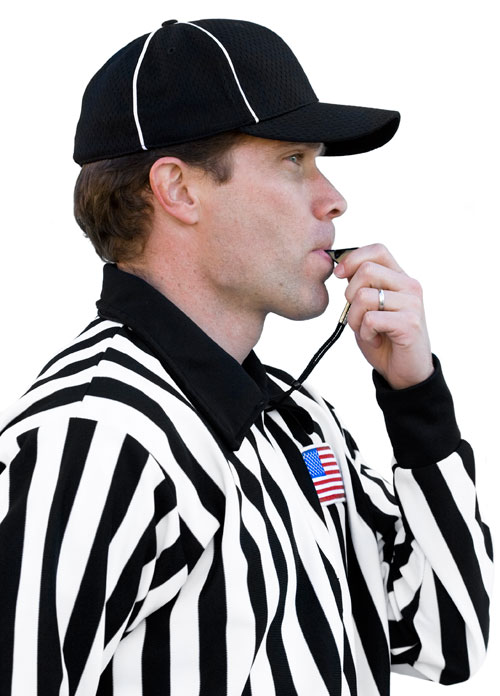By Bob Gardner, Executive Director of the National Federation of State High School Associations and Julian Tackett, Commissioner of the Kentucky High School Athletic Association.
They don’t normally make the headlines, their names are not in the box scores unless at the very bottom, and they don’t make the all-star teams, but perhaps the most essential individuals in high school sports are the contest officials.
These individuals are so important that, in fact, there would be no organized competitive sports at the high school level without the men and women who officiate these contests every day across the country. Subtract the dedicated men and women who officiate high school sports and competitive sports would no longer be organized; they would be chaotic. As many have stated, without officials, it is simply recess.
In some areas, high school officials are retiring faster than new licenses are being issued. And junior varsity, freshmen, and middle school games are being postponed – or even canceled – because there are not enough men and women to officiate them.
It is not without challenges. As one veteran Kentucky official recently stated, “Officiating/Umpiring at our level is an avocation composed of imperfect people trying to be perfect while performing their trade for people who are imperfect and expecting perfection.” We are thankful that local officials associations and veteran officials throughout the country are willing to recruit, train, mentor and be partnered with, any person desiring to officiate.
Anyone looking for a unique way to contribute to the local community should consider becoming a licensed high school official. For individuals who played sports in high school, officiating is a great way to stay close to the sport after their playing days have ended. Officiating helps people stay in shape, expands their social and professional network and offers part-time work that is flexible, yet pays. In fact, officiating is a form of community service, but with compensation.
Another benefit of officiating is that individuals become role models so that teenagers in the community can learn the life lessons that high school sports teach. Students learn to respect their opponents and the rules of the game and the importance of practicing good sportsmanship thanks, in part, to those men and women who officiate. And the objectivity and integrity that high school officials display is an example that every young person needs to observe firsthand. In short, communities around the country will be stronger because of the life lessons that high school officials help teach the next generation.
Officiating is a great way to stay connected to sports and to give back to the local high school and community. We need dedicated men and women to become involved so that high school sports can continue to prosper for years to come.
Individuals interested in learning more about becoming a high school official, and even beginning the application process, can do so at www.HighSchoolOfficials.com or by licensing online through the links at http://khsaa.org/officials/officiating-information/.


